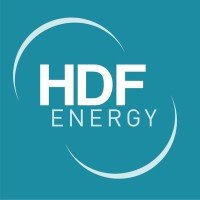SuperTurbo, Linamar cooperate on engine; MHA Nation agrees on Hydrogen Hub
Linamar will manufacture and test SuperTurbos for the global market after completing testing.

SuperTurbo Technologies Inc. and Linamar Corporation have agreed to bring SuperTurbo™, a transformational technology, to market.
SuperTurbo will produce prototypes for durability testing to significantly reduce hydrogen, diesel and natural gas internal combustion engines. It will result higher levels of productivity and lower total cost of ownership for the on-highway and off-highway commercial vehicle market.
The SuperTurbo improves the efficiency of diesel, hydrogen, and natural gas internal combustion engines’ efficiency while significantly reducing harmful emissions. McLaren Engineering, a division of Linamar, will produce prototype units for durability testing.
The SuperTurbo is a mechanically driven turbocharger that provides and supports 7.5L to 16L internal combustion engines for both on-highway and construction applications.
SuperTurbo also completed their collaboration with AVL List GmbH to investigate the carbon and emissions reduction possibilities of the hydrogen internal combustion engine (H2ICE).
The SuperTurbo demonstrated the ability to optimise the lambda to lower engine-out NOx to less than 1-2 g/kWh over the majority of the engine operating range, increasing efficiency by up to 4% while maintaining rapid, diesel-like transients.
MHA Nation partners with Bakken Energy and Mitsubishi Power Americas
Bakken Energy (Clean hydrogen infrastructure developer) and Mitsubishi Power Americas Inc. have agreed with the Mandan, Hidatsa, and Arikara (MHA) Nation for natural gas supplies for the Great Plains Hydrogen Hub.
The Great Plains Hydrogen Hub is the redevelopment of Basin Electric Power Cooperative’s Great Plains Synfuels Plant and is expected to be commercially operational in early 2027. It will be one of the US’s largest clean hydrogen production facilities, with a gross production capacity of 348,000 metric tons/year of clean hydrogen with the lowest cost.
The Great Plains Hydrogen Hub will be a regional hub, producing, delivering, and storing clean hydrogen for transportation, agriculture and other decarbonisation needs in the upper Midwest. By using state-of-the-art auto thermal reforming, carbon capture and sequestration, the hydrogen will be 96% carbon-free. The capital cost of the project is estimated to be $2 billion.
